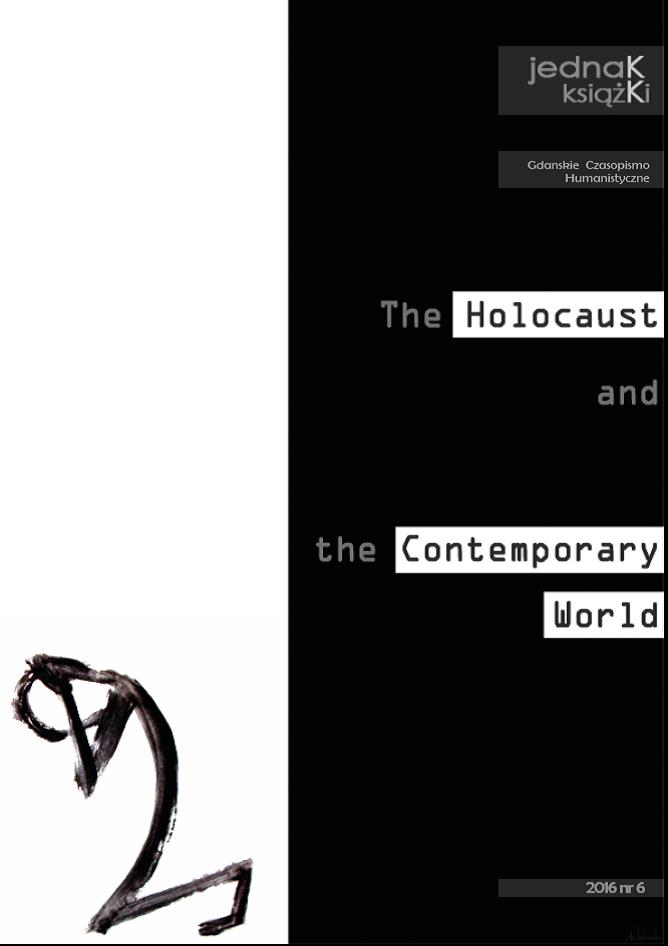Interpretation of Silence in Paul Celan’s Holocaust Poetics
Słowa kluczowe:
Holocaust, existential silence, language grille, persecution, death, ash.Abstrakt
To discuss in the light of Theodre Adorno’s reconsideration of his own dictum – “To write poetry after Auschwitz is barbaric” – Paul Celan’s Holocaust-born epochal art restates “only poetry is possible after Auschwitz”. The Shaoh stands as a testimony of the most painful endurance in history thus permanently fracturing the self-confidence especially of many Jews and their belief in the “Biblical Chosenness”. The consequent literature of continuing silence with a guilt of survival has redefined the term suffering especially in the poetry of Paul Celan which if turned out to be the “last inarticulate babble” had the merit of silencing words into a condensed metaphoric image of recurring complexity that finally brings out a paradoxical message with a strange “capacity to have the incapacity to speak”. Unlike the poetry of the Romantics which was verbally vociferous, Celan’s was more so with silence being a displaced being like a blurred horizon between the Pre-Holocaust land and the Post-Holocaust sky. Silence as a form of dense literary genre which is like “a letter in a bottle thrown out to sea” in Celan’s poetry starts at the periphery of Auschwitz cries. Ironically enough his suicide culminates in this mission. His metaphoric voice sets out for excavation of memories in Shoah painfully encountering aphasia with a parallel pursuit for a language that replays the action and music of the perpetual death in the still fresh picture of ash-flake rain or charred chunks of human flesh. Celan explored the darkest domains of human history with a polysemeous canon and systematically constructed the art of silence as an emerging literary consequence where the words become cryptic, fractured and attain what Gilles Deleuze and Guttari said: “the becoming minor of the major language”.
Downloads
Bibliografia
Brustein William L. 2003. Roots of Hate: Anti-Semitism in Europe before the Holocaust. Cambridge: University of Cambridge Press.
Caruth Cathy. ed. 1995. Trauma: Explorations in Memory. Maryland: John Hopkins University Press.
Celan Paul. 1972. Selected Poems. Middlesex: Penguin Books Ltd.
Chare Nichols. 2011 Auschwitz and Afterimages: Abjection, witnessing and Representation. New York: I.B.Tauris & Co.
Englund Axel. 2012. Still Songs: Music in and Around the Poetry of Paul Celan. Surrey: Ashgate Publishing Ltd.
Felstiner John. 2001. Paul Celan: Poet, Survivor, Jew. London: Yale University Press.
Fioretos Aris. ed. 1994. Word Traces: Readings of Paul Celan. Maryland: The John Hopkins University Press.
Fisher Adam. 1991. An Everlasting Name: A Service for Remembering the Shoah. New Jersey: Behrman House, Inc.
Hirsch Marianne and Spitzer Leo. 2010. Ghosts of Home: The Afterlife of Czernowitz in Jewish Memory. California: University of California Press.
Joris Pierre. 2001. “Celan and France.” Contratemps 2:12. Accessed September 22, 2014.
Lyon James K. 2006. Paul Celan and Martin Heidegger: An Unresolved Conversation, 1951-1970. Maryland: John Hopkins University Press.
Magavern Sam. 2009. Primo Levi’s Universe: A Writer’s Journey. New York: Palgrave Macmillan.
Mahapatra Jayanta. 1992. A Whiteness of Bone. New Delhi: Penguin Books Indian Ltd.
Mansour Dina et al. 2014. Identity, Difference and Belonging. Oxford: Interdisciplinary Press.
Patterson David. 1992. The Shriek of Silence: A Phenomenology of the Holocaust Novel. Lexington: The University Press of Kentucky.
Peyton Courtney Caswell and Tara Keppler. 2013. Poetry Penned to Perfection: Modern Selections from a Proud Poetess. Strathmore: eBookit.com.
Popov Nikoloi and Mc Hugh, trans. 2000. Glottol Stop: 101 Poems by Paul Celan. Middletown: Wesleyan University Press.
Reiner Annie. 2012. Bion and Being: Passion and Creative Mind. London: Karnac Books.
Schlant Ernestine. 1999. The Language of Silence: West German Literature and Holocaust. New York: Routledge.
Steiner George. 1998. After Babel: Aspects of Language and Translation. Oxford: Oxford University Press.
Stephens Elaine C. et al. 1995. Learning about--the Holocaust: literature and other resources for young people. Homerville: Library Professional Publications.
Weissbort Daniel. 1991. The Poetry of Survival: Post-war Poets of Central and Eastern Europe. London: Anvil Press Poetry.
Wolfson Susan J. and Brown Marshall, eds. 2006. Reading for Form. Seattle: University of Washington Press.
Ziarek Krzysztof. 1994. Inflected Language: Toward a Hermeneutics of Nearness: Heidegger, Levinas, Stevens, Celan. New York: State University of New York Press.

 Uniwersyteckie Czasopisma Naukowe
Uniwersyteckie Czasopisma Naukowe




